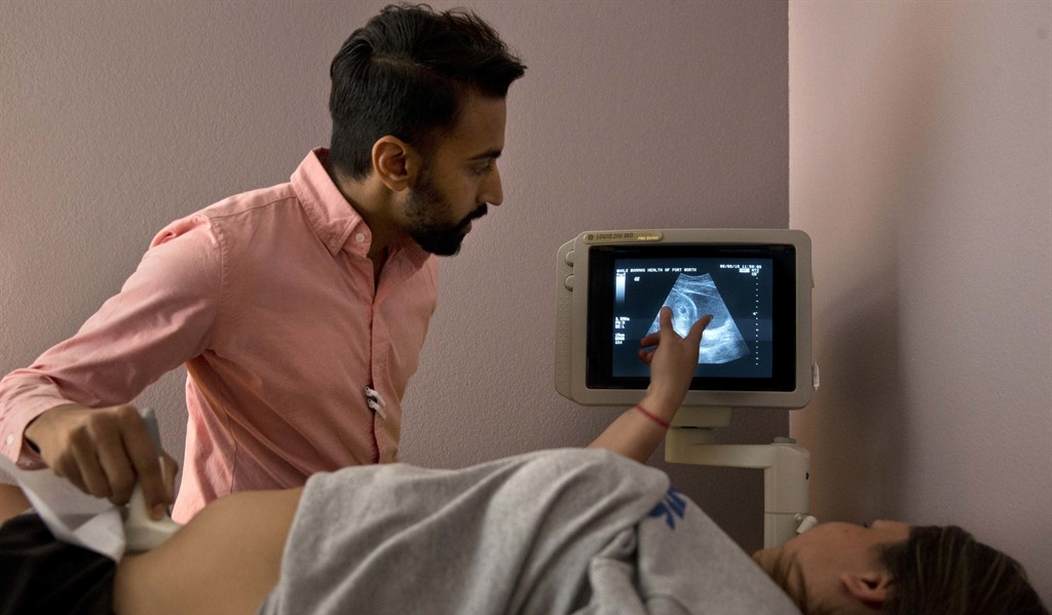In a report posted Wednesday on the University of Oxford’s Practical Ethics website, bioethicists Roger Crisp and Elizabeth Crisp wrote that mothers carrying twins who are considering aborting one of the babies should not feel anxiety upon making their decision.
“In our view, the mother has no reason to be especially distressed, since, other things being equal, fetal reduction is ethically equivalent to a standard singleton abortion,” the article reads.
The report also states that the choice of which fetus to abort in the case of identical twins is not morally important.
“How might the actual selection be made in a case involving identical twins? It could be a purely medical matter, with the less healthy fetus, or the one easier to remove, being selected. Otherwise it may be random, left to the surgeon, or decided by the toss of a coin. Again, this procedure seems to lack moral importance.”
In 2011, New York City obstetrician Dr. Mark Evans told ABC News that he was convinced of the safety of the procedure after publishing a 2004 paper on the subject.
“The data forced me to change my opinion. We now know that twins are not twice the risk of singletons, they are more like four times the risk. For instance, there is a 1 in 700 chance of cerebral palsy with a single birth, but 1 in 100 with twins. If you define success of a pregnancy as a healthy baby and a healthy mother, it’s safer to reduce to singleton. Women should be aware that this is a possibility.”
Recommended
However, Dr. Kelly Ross who is a pediatrician at Missouri Baptist Medical Center said many families experience grief after reducing a multiple pregnancy down to one child.
“At the time you make the decision to reduce, parents don’t know what the future will hold. Some of the families go on to experience a lot of grief. At every milestone for the child they decided to keep, there is this ghost in the room, this feeling that there should have been two of them,” Ross said.
According to an article by the American College of Obstetricians and Gynecologists, “Multifetal pregnancies should be prevented whenever possible,” adding that “Obstetrician-gynecologists should be knowledgeable about the medical risks of multifetal pregnancy, the potential medical benefits of multifetal pregnancy reduction, and the complex ethical issues inherent in decisions regarding multifetal pregnancy reduction.”
In a 2017 interview, Dr. Tom Hannam of the Hannam Fertility Center in Toronto said that although the reduction technique is “effective,” he added that “the number of people who do selective reduction is fortunately very low.”
However, Crisp also notes that the surviving twin may experience “feelings of vulnerability, guilt, and loss” because of the absence of the other child, and “the mother will be constantly distressed by the surviving twins’ ‘reminding’ her of what she has chosen.”
“It is true that the mother and the surviving child may experience particular feelings of distress that would not arise in the case of singleton abortions, and this does seem to us a morally relevant feature. But given the weight of other relevant factors, we believe that in nearly every case this particular consideration is unlikely to be decisive, though it should of course be taken into account by the mother when she is making her choice about whether or not to engage in selective reduction,” the authors conclude.

























Join the conversation as a VIP Member